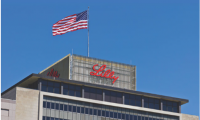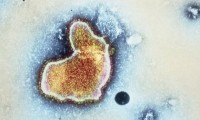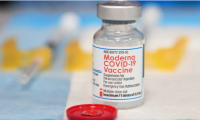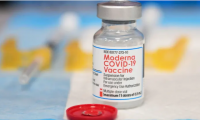-
Novavax surges after biotech company unveils job cuts, positive vaccine data
- Source: drugdu
- 137
- May 11, 2023
-
Novel Rutgers COVID vaccine may provide long-lasting protection
- Source: drugdu
- 137
- May 10, 2023
-
AI helps create better, simpler hepatitis and COVID-19 tests
- Source: drugdu
- 112
- May 10, 2023
-
Treatment for uterine fibroids without surgery
- Source: drugdu
- 121
- May 9, 2023
-
Eli Lilly’s Alzheimer’s drug shown to significantly slow disease progression in phase 3 trial
- Source: drugdu
- 140
- May 7, 2023
-
US drug regulator approves world’s first RSV vaccine
- Source: drugdu
- 128
- May 7, 2023
-
Pfizer Acquires COVID-Flu Test Developer Lucira Health for USD 36.4 Million
- Source: drugdu
- 122
- May 5, 2023
-
Johnson & Johnson’s PARP combo nabs first global nod but faces tough fight against AZ, Merck’s Lynparza
- Source: drugdu
- 127
- May 3, 2023
-
Moderna says it expects up to $15 billion in sales of Covid, RSV, flu vaccines in 2027
- Source: drugdu
- 123
- May 2, 2023
-
Moderna says it expects up to $15 billion in sales of Covid, RSV, flu vaccines in 2027
- Source: drugdu
- 143
- April 30, 2023
your submission has already been received.
OK
Subscribe
Please enter a valid Email address!
Submit
The most relevant industry news & insight will be sent to you every two weeks.













